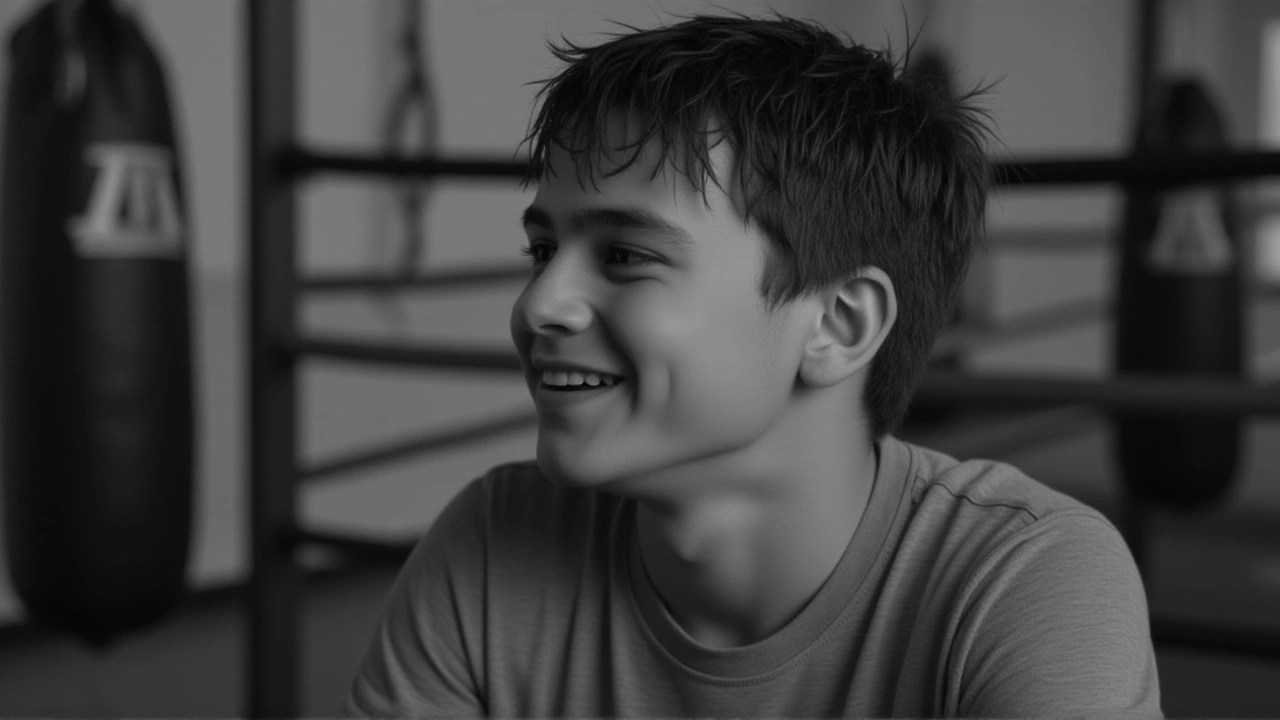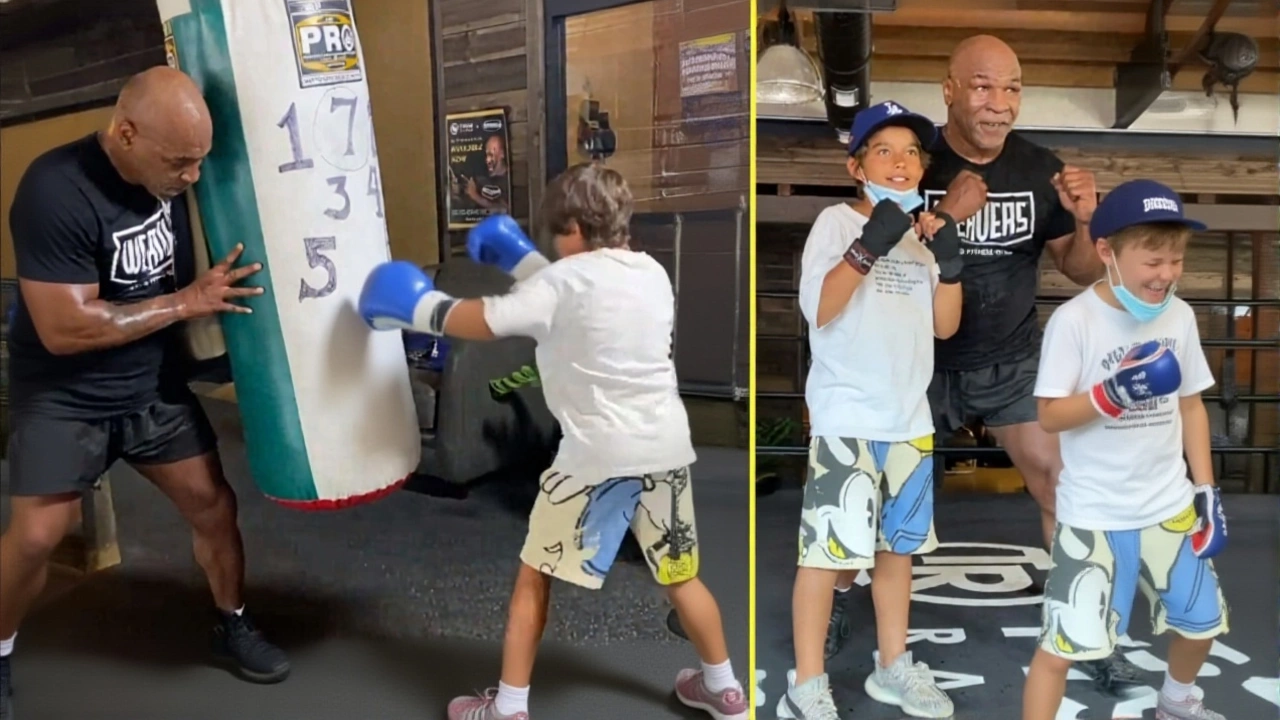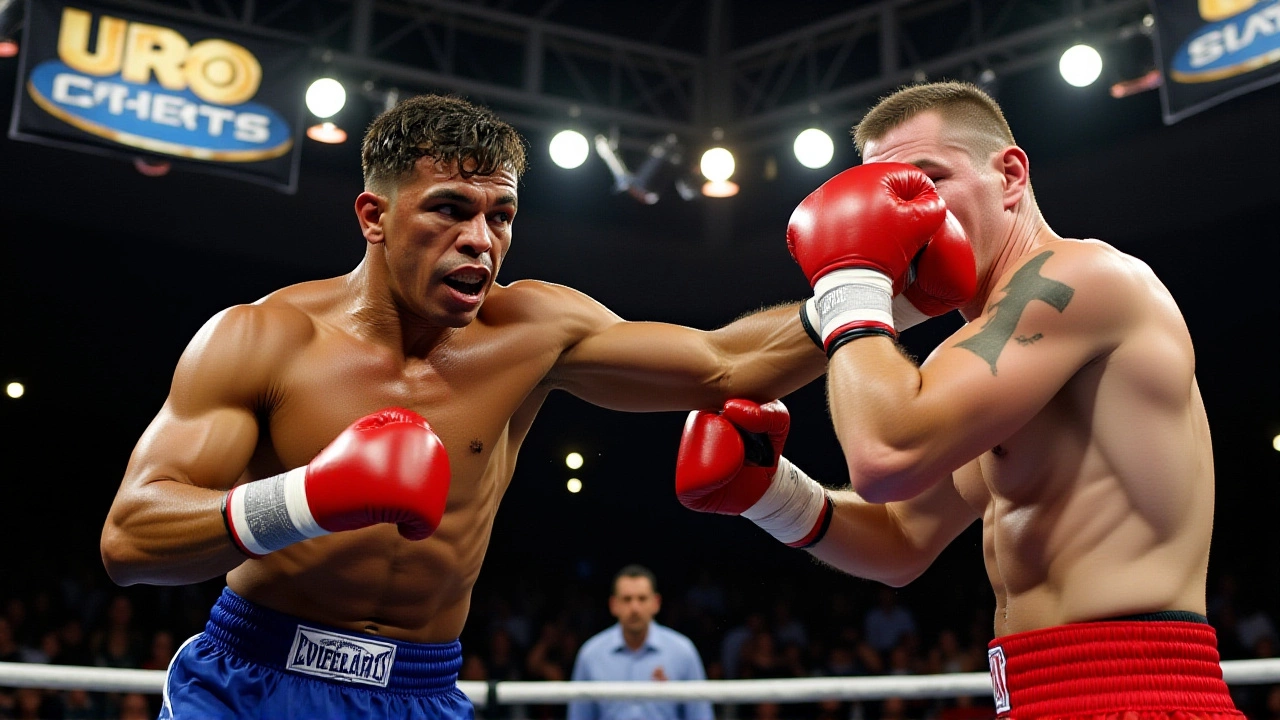When Arturo Gatti Jr., the 17‑year‑old son of late International Boxing Hall of Famer Arturo Gatti, was found dead on October 8, 2025, the World Boxing Association (WBA) posted a solemn statement on its official Twitter account. The announcement, released at 03:53 PM ET from the WBA’s headquarters in Panama City, confirmed the loss without giving a cause. Shortly thereafter, longtime associate Chuck Zito, who served as Gatti Sr.’s bodyguard, posted a grieving Instagram message, and personal trainer Moe Latif echoed the heartbreak, pleading for privacy. The tragedy sent shockwaves through the boxing world, reviving memories of Gatti Sr.’s own turbulent life and untimely death in 2009.
Background on the Gatti Legacy
Arturo Gatti Sr., born April 15, 1972, in Montreal, Quebec, rose from a modest upbringing to become one of the sport’s most beloved underdogs. Over a 16‑year career he amassed a 40‑9 record with 31 knockouts, earning the nickname “the Mexican St. Nick.” He captured the USBA super‑featherweight title in 1994 and fought iconic battles against Micky Ward that are still replayed on fight‑night recaps. After a technical‑KO loss to Alfonso Gomez in July 2007, he retired, was inducted into the International Boxing Hall of Fame on December 10, 2012, and died under disputed circumstances in Brazil on July 11, 2009.
The Gatti name has always carried a mix of glory and tragedy. While the elder Gatti’s fights were celebrated for their heart‑pounding drama, his post‑retirement life was marked by legal troubles and personal strife. Those shadows lingered for his son, who grew up in the public eye, training under the watchful eye of coach Moe Latif and dreaming of stepping into the ring himself.
Details of the Tragedy
The first public confirmation came from the WBA’s Twitter feed at 03:53 PM ET on October 8, 2025, stating: “The WBA and the boxing world mourn the passing of Arturo Gatti Jr. His journey was just beginning, yet his spirit will live on – now reunited with his legendary father among the stars. Our deepest condolences to his family and loved ones.” No cause or location was disclosed.
Within minutes, Chuck Zito posted on Instagram: “It’s with a heavy heart that I have to say… R.I.P. to 17‑year‑old Arturo Gatti Jr.” The message was accompanied by a photo of Gatti Sr. in his prime, underscoring the generational loss. Moe Latif’s Instagram story the same day read, “It is unfortunately not a rumor or a joke. Arturo is gone,” and asked followers to respect the family’s privacy.
While mainstream outlets such as ESPN and The Independent reported the death without detail, an October 2025 update to the English‑language Wikipedia page for Arturo Gatti listed the cause as suicide by hanging. That line, however, has not been corroborated by any official source, leaving the exact circumstances shrouded in uncertainty.
Reactions from the Boxing Community
Boxing promoters, former champions, and fans took to social media to share memories of both Gattis. Veteran commentator Al Bernstein tweeted, “The Gatti name embodied heart. Losing Arturo Jr. at 17 is a brutal reminder that the fight often continues outside the ring.” Former world champion Amir Khan posted a longer note calling for “greater mental‑health support for young athletes navigating fame and pressure.”
International Boxing Hall of Fame officials declined to comment, citing “family wishes” and the need for “a respectful period of mourning.” The WBA, meanwhile, promised to cooperate with any investigation launched by local authorities, though no police agency has been identified in public records as of October 9, 2025.

Broader Implications for Athlete Mental Health
Gatti Jr.’s death reignites a conversation that has been gaining momentum since the high‑profile suicides of other athletes in recent years. A 2023 study by the Sports Medicine Association found that 24 % of professional boxers reported depressive symptoms, a rate higher than the general population.
Dr. Laura Martinez, a sports psychologist at the University of Nevada, Reno, told the press: “When a young athlete grows up in the shadow of a legend, the pressure to perform can be crushing. The boxing community must build a safety net—confidential counseling, routine mental‑health screenings, and a culture that encourages speaking up.”
Advocacy groups such as Athletes for Mental Wellness have already scheduled a webinar for late October, aiming to address “the silent battle behind the gloves.” Whether those efforts will translate into concrete policy changes at major sanctioning bodies remains to be seen.
What Comes Next?
Local authorities in the yet‑unnamed jurisdiction where the body was discovered have opened a standard investigation, according to an anonymous law‑enforcement source. The family has requested privacy, and no funeral details have been released.
In the weeks ahead, the WBA is expected to issue a formal memorandum on mental‑health initiatives for its ranked athletes. Meanwhile, promoters are reportedly reviewing contract clauses that require mental‑health assessments before fight approvals.

Historical Context of Boxing Tragedies
Boxing’s history is littered with untimely deaths, from the 1962 loss of Davey Moore to the 2011 suicide of former world champion James Toney's son. Each episode has spurred incremental safety reforms—improved head‑gear standards, stricter medical checks, and, more recently, mental‑health resources.
The Gatti family’s saga adds another chapter to that legacy, reminding fans that the sport’s brutality isn’t limited to the canvas; it can follow athletes long after the final bell.
Frequently Asked Questions
How does this tragedy affect young boxers today?
It shines a spotlight on the mental‑health pressures young fighters face, especially those with famous relatives. Experts say it may accelerate the rollout of counseling services and mandatory psychological screenings in amateur and professional gyms.
What led to Arturo Gatti Jr.’s death?
Official sources have not released a cause. Wikipedia lists suicide by hanging, but the WBA and family have kept details private while a local police investigation proceeds.
Who was Arturo Gatti Jr. beyond being the son of a legend?
He was an aspiring boxer training under coach Moe Latif, known among peers for his work ethic and love for the sport. Friends described him as charismatic, with a growing fan base on social media.
What are experts saying about mental‑health safeguards in boxing?
Sports psychologists argue that mandatory mental‑health evaluations should become as routine as physical exams. They cite rising rates of depression and anxiety among fighters, urging governing bodies to fund anonymous counseling hotlines.
Will the WBA introduce new policies after this incident?
While the WBA has not announced specifics, insiders say a draft memorandum on athlete well‑being is in the works, likely to include mental‑health resource referrals for all ranked members.
